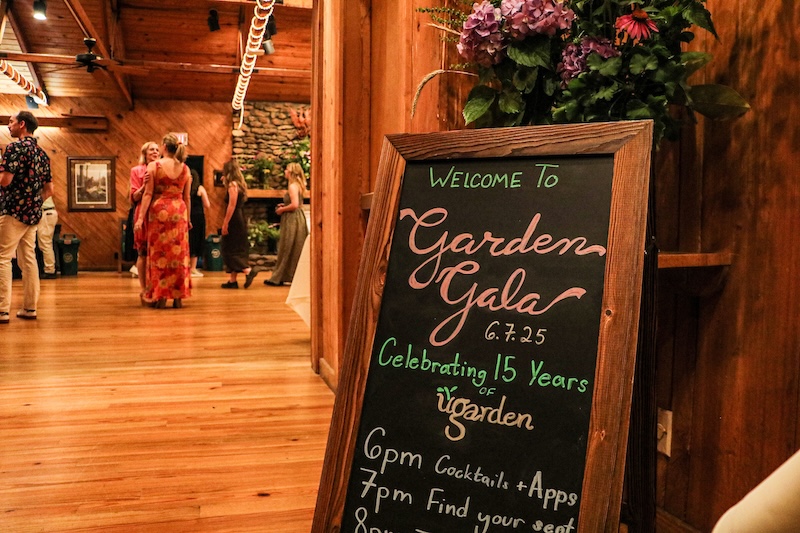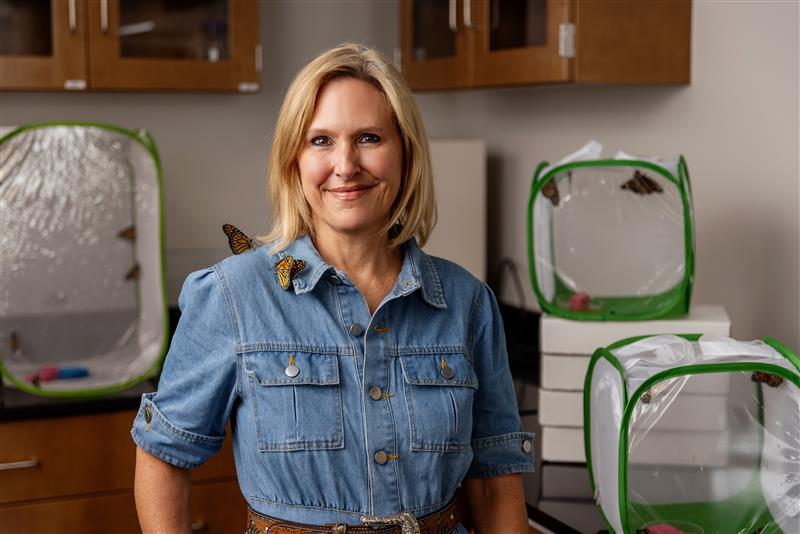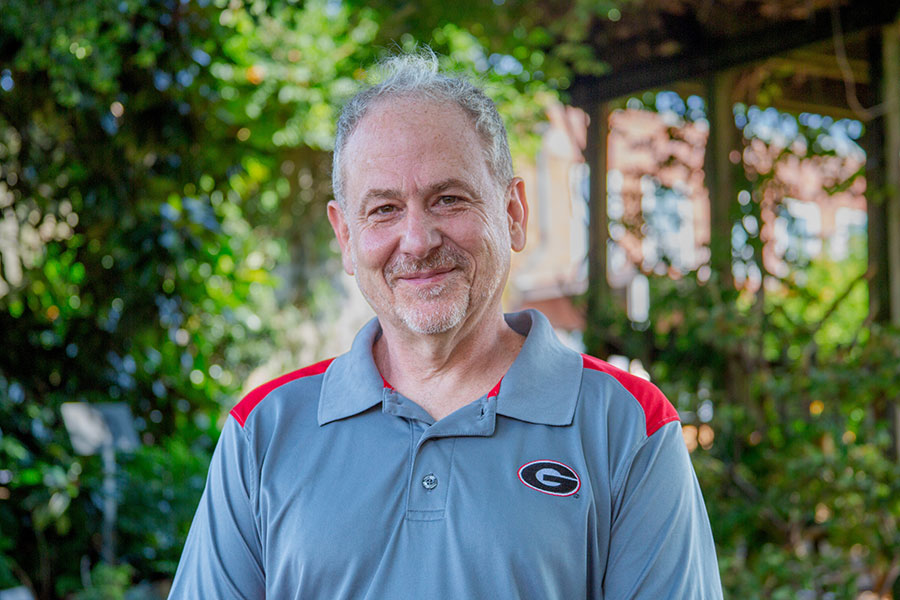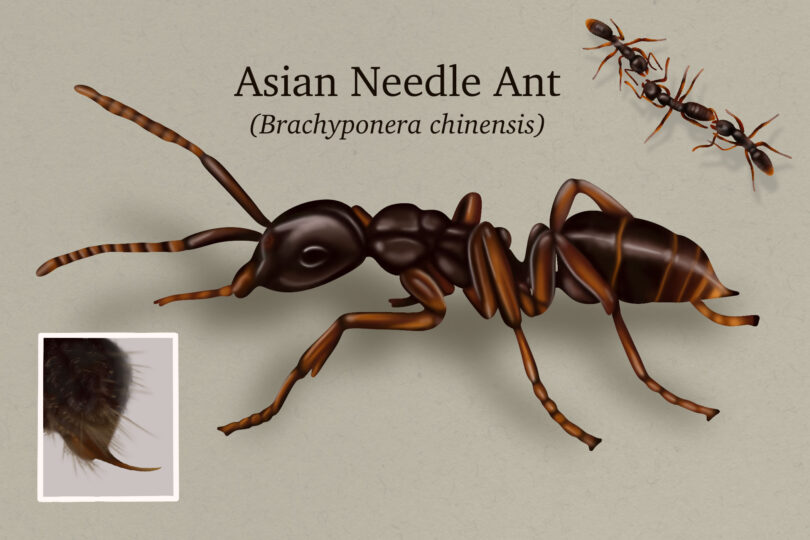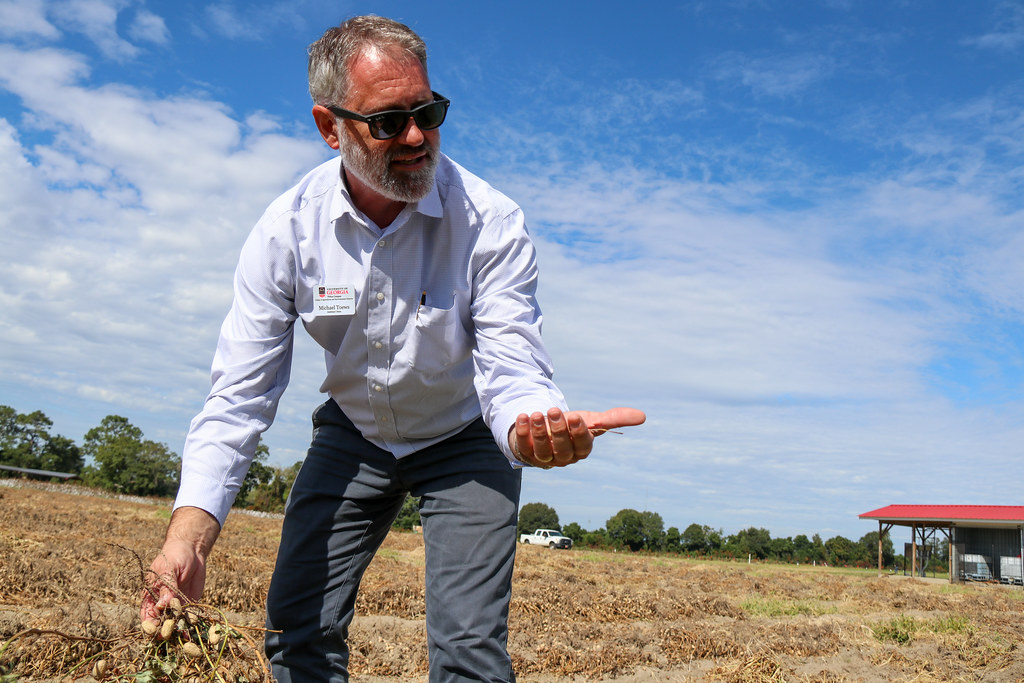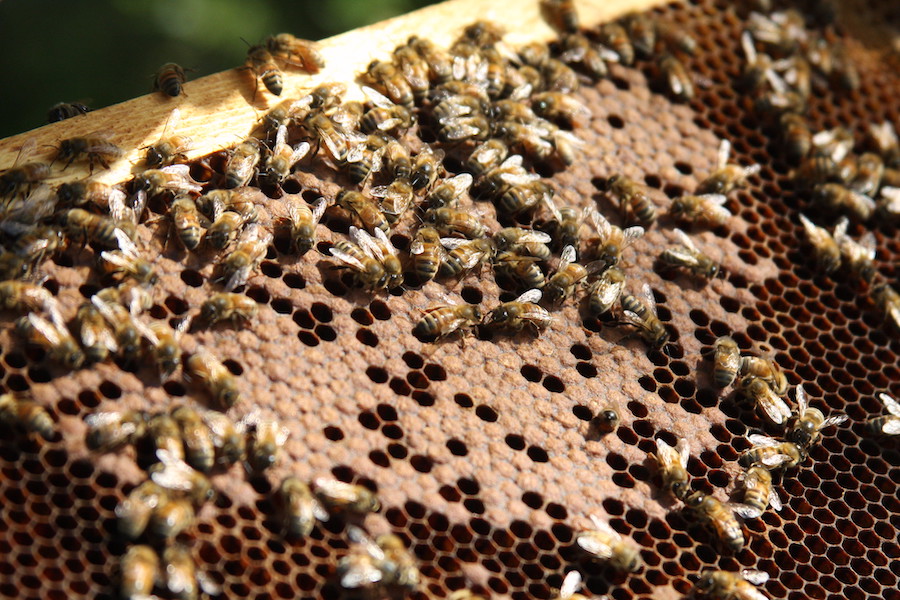
“I was one of those teenagers — I wanted to be an actress. I went to college for theater but dropped out and got on drugs.”
This is certified beekeeper Joy Ishi (Cornett) Smith’s story. Or it was for a while.
After dropping out of college, Smith’s life continued a downward spiral, one she tried to stop by having kids.
“I thought becoming a parent would make me better. That didn’t work for me,” she said. “It’s not that they weren’t important, but addiction had a stronger hold on my mind than I thought it did. No matter how much I broke away, I couldn’t stay away, and it landed me in prison.”
While incarcerated at Arrendale State Prison in Habersham County, Georgia, Smith was involved in a Strategic Intervention Program, or SIP, which she describes as a boot camp for repeat offenders. It was while she was out marching that she first noticed the beehives.
The hives, separated from the outside world by 14 locked doors, are a part of the Georgia Prison Beekeeping Program.
UGA Honey Bee Lab offers beekeeping certification
According to a history produced by the University of Georgia Honey Bee Program, the Georgia Prison Beekeeping Program started at Smith State Prison in Tattnall County in 2012 when a prison resident, Roy Nichols, started talking with other residents about the bees he used to keep before he was incarcerated. The reminiscing turned into planning, and despite running into countless roadblocks, the initial class in Georgia launched with a single hive. It was enough for some of the early program participants to see the opportunity — both to learn and expand.
The first residents involved with the class received a prison certificate of participation but no official designation for their time and effort. A series of phone calls and meetings ensued, involving the then-warden of Smith State, an agent from UGA Cooperative Extension, a retired superintendent of public schools in Georgia, and Bear Kelley, then-vice president of the Ogeechee Beekeepers Association.
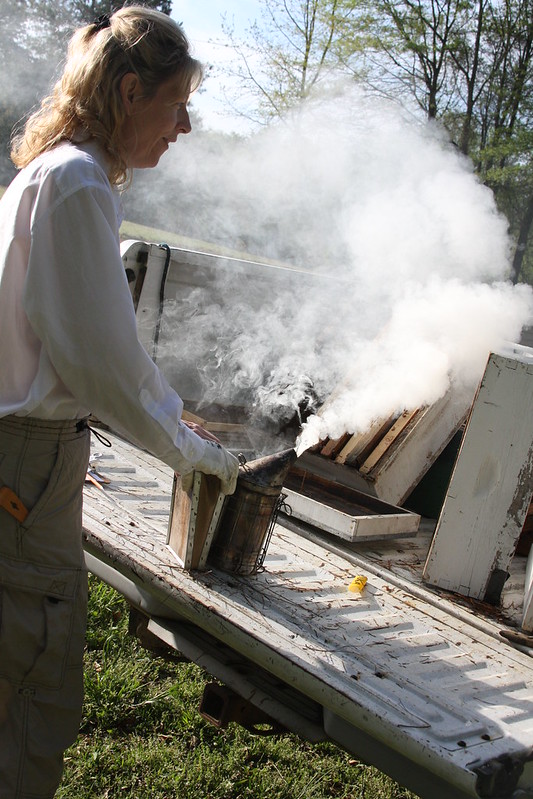
Kelley agreed with the need for a more formal certification, and his first call was to Jennifer Berry, apiculture research professional and lab manager for the UGA Honey Bee Program in the College of Agricultural and Environmental Sciences.
Berry and Kelley quickly got to work on the details of a certification program at Smith State. Once the first class was certified, there was an immediate waitlist for the program.
Since the program’s inception, more than 150 beekeepers have been certified, including several at the master beekeeper level.
“This is beyond just a feel-good program — we’ve had students learn to read just so they could participate,” Berry said. “It clicks in their minds that they can learn — through beekeeping they can learn.”
Falling in love with bees
In the yard at Arrendale, Smith would find herself picking and eating dandelion greens to prevent illness. Although her small access to the outdoors was surrounded by razor wire, being in nature was intrinsic to her quality of life, something that was not lost on the director of programs at the prison.
Smith was introduced to Julia Mahood, master beekeeper, volunteer beekeeping instructor at Arrendale and prison committee chair for the Georgia Beekeepers Association. With the help of Mahood and master beekeeper and program volunteer Virginia Webb, Smith realized her true passion for nature, the outdoors and the honey bee.
“The first time I went out to the hives and put on a bee suit, they were everywhere. Pinging off my suit. I fell in love with bees in that moment. I cried,” Smith said. “These little things affect everything out there. They make things thrive by pollinating them. There is so much they can do. I realized in that moment how small I was in the universe. All those things that I did previously were completely irrelevant to what I could do moving forward. I got very serious about beekeeping. I had plans.”
Rehabilitation through the hive
Mahood, who just finished her sixth year of teaching at Arrendale, said that while it’s easy to start volunteering for the program focused on crimes and sentences, she quickly realized that the students surrounding her hives were simply women, many of whom didn’t have the resources to make good choices.
“When you are in my class, you are a beekeeper. You aren’t a prisoner or an offender. I am a beekeeper, you are a beekeeper, and we’re learning from each other,” Mahood said. “These women are the most appreciative people I have ever worked with. They are incredibly grateful to connect with nature, be outside and learn something. Volunteering in a prison is so enlightening and rewarding — it is the most rewarding work I’ve done.”
Current Arrendale resident and GED program teacher’s aide Amy W. waited until the program had been at the prison for two or three years before she signed up for a presentation. She began the program in January 2019 as a way to keep her mind occupied without causing her to lose her detail (job), and she is now working on her master beekeeper certification.
“Beekeeping gives me direction to focus and keeps me from dwelling on my current situation where I am away from my family and friends and cut off from society,” she said. “With the COVID restrictions in place, I have not seen my family in two years. It could easily have been a very dark time and beekeeping has helped take my focus off that.”
.jpg)
She said that beekeeping has been a light shining in the dark, not only keeping depression at bay but also giving her ideas for careers and hobbies when she is released.
Berry and Mahood agree that rehabilitation through programs that enable those incarcerated to envision a life after release is a lofty, but achievable, goal.
“My overall hope would be that this program could be a catalyst for more programs like it,” Berry said. “It is our duty as citizens to prepare residents for a successful life outside of prison.”
Expanding the Georgia Prison Beekeeping Program
According to Heather Lea Corbett, director of career, technical and higher education at the Georgia Department of Corrections, the Georgia Prison Beekeeping Program is running at eight prisons throughout the state. With additional facilities expressing interest in establishing new programs, the possibility of expanding is being explored.
“We would also like to expand relationships with potential employers, contractors and organizations such as Georgia Grown that could facilitate returning citizens using their beekeeping skills and knowledge upon release,” Corbett said. “We would also like to continue to encourage offenders in the beekeeping programs to earn stackable credentials in related programs such as horticulture, carpentry and entrepreneurship.”
In the meantime, Berry said the program is rebuilding from the effects of COVID-19, including inventorying hives and reorganizing volunteers that come from the 48 local beekeeping clubs in Georgia. Ten students have already been certified this year, with many more waiting in the wings for the next round of testing. She is also working with the Georgia Department of Corrections on a memorandum of understanding to increase the legitimacy of the program and prevent individual wardens from dissolving it.
“We’ve seen situations where momentum builds and then comes to a screeching halt because wardens change hands and the new warden has different priorities,” Berry said. “When the warden is on board, it’s great. But if they change, the whole program can change.”
‘It gives us hope ... that we can be different’
Despite many setbacks — COVID-related and beyond — Smith became a certified beekeeper in 2020, the same year she was released from Arrendale.
“This is the first time I’ve gotten out and stayed out; I completely attribute that to becoming a beekeeper,” Smith said. “I think about sustaining my life and not giving up on it.”
.jpg)
After her release, Smith went to work for a man who sells bees and bee supplies. There, she learned how to build hive boxes and frames and assemble them for sale, and how bees are shipped across the country. She said it was an amazing adventure because of the intricacy of the process.
“Some may think it’s tedious, but when you have bees, when you use bees to pollinate your garden, your product is changed — it is improved,” Smith said. “I can see the difference, even in the grocery store, in the way things ripen, in the quality of products. The bees don’t waste anything. They use everything in their environment for the good of the hive. It made me want to be more of a team player than a solo act.”
Though her first personal colony of bees from that job absconded — suddenly leaving the hive in search of another — Smith said it was a good learning experience.
Now, with donated supplies in hand, she has plans to install hives on the properties of community members and organizations who have asked her to install and maintain them until she can purchase her own land. Her goal this year, in addition to working toward her journeyman beekeeper certification, is to install and maintain four beehives.
Smith said that the Georgia Prison Beekeeping Program taught her that people are never failing, they are learning.
“If we can grasp that, we have hope. It gives us hope … that we can be different,” she said. “I can do anything. I can raise bees, I can make money and I can support myself without having to do something illegal.”
“There is so much information to learn. I have dreams and aspirations of doing bee research to help further the information we have. The world needs more people like that — to care, that want to help others,” she said. “I’ve always wanted to help but never had any clue how I would. But when you can see and learn from the hive, it helps you help others to find solutions.”
To learn more about the UGA Honey Bee Program, visit bees.caes.uga.edu.

